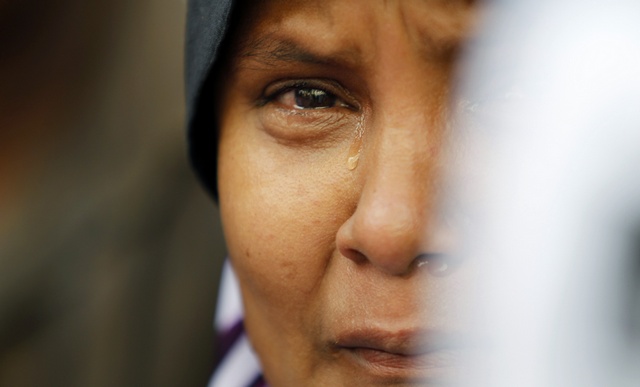Burma has a long way to go towards a clean rights record in the coming year, according to the Human Rights Watch 2014 World Report released on Tuesday.
“There were improvements in some areas, such as the release of political prisoners, but that was accompanied by failures to prevent communal violence against Muslims or demand accountability for abuses against ethnic groups like the Kachin or the Rohingya,” said Phil Robertson, deputy director of the Human Rights Watch (HRW) Asia division.
The overall assessment showed that while Burma has made some advances and many promises over the past year, 2013 showed some downward trends.
Four main issues dominate the rights conversation in Burma; targeted violence against Muslims, laws limiting basic freedoms, ethnic conflict and displacement.
The report emphasises that a plague of anti-Muslim violence has “spread” over the past year, while the Burmese government has made insufficient or ineffective efforts to investigate, punish offenders and prevent further outbreaks.
[related]
“A government commission of inquiry report on the anti-Rohingya violence of June and October 2012 in Arakan State failed to investigate cases or assign responsibility for the violence,” the report read.
In April of last year, HRW published independent research concluding that attacks against stateless Muslim Rohingyas “amounted to a campaign of ‘ethnic cleansing’ and crimes against humanity,” though a government spokesperson rejected their findings as “biased” and “questionable”.
The new publication, which details events that occurred between late 2012 and November 2013, came in the wake of new reports of deadly assault in Arakan State, where ethno-religious clashes have frequently erupted since June 2012.
Reports of last week’s events have thus far been dismissed by the Burmese government, and several foreign embassies and organisations have issued calls for a full, impartial investigation.
Robertson told DVB on Wednesday that, “The Burma government and, in particular, the Tatmadaw, systematically restrict access to areas where it doesn’t want outsiders to know that human rights abuses are being perpetrated, such as in Kachin and Arakan states.”
The report claims that abuses continue against other minorities, particularly the Kachin, who have made progress towards peace with the Burmese armed forces but are still engaged in sporadic conflict.
Other rights groups have similarly disclosed recent violations in ethnic areas; last week the Women’s League of Burma called on the government and the international community to end what they called “systematic sexual violence” against ethnic women, reporting that they had documented over 100 cases of sexual assault — 47 of which were gang rapes committed by soldiers — since just 2010.
Robertson warned that while the improvements have been commendable, key foreign actors should not hastily reward Burma, which has a deep and recent history of abuse.
“Unfortunately, too many governments and observers in the international community just want to see one side of this dynamic situation, which is praising progress being made on rights without recognizing that continued pressure is needed to deepen reforms, ensure accountability and revoke rights repressing laws,” he said.
Independent global watchdog HRW each year publishes the findings of their original research on human rights practices. This year’s report surveyed more than 90 countries.



